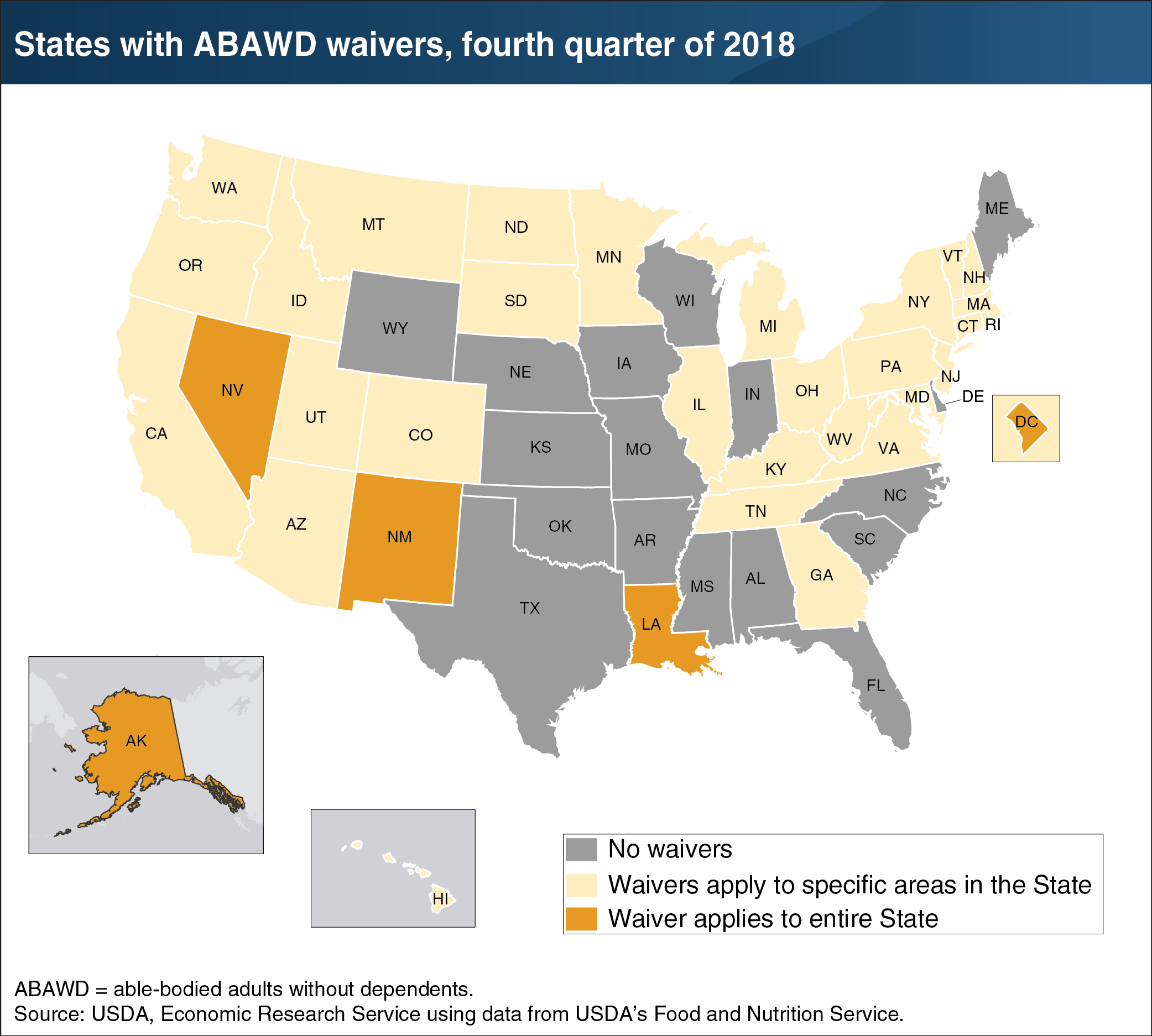2018 Farm Act maintains current work requirements for USDA’s SNAP program
- by Laura Tiehen
- 2/26/2019

Signed into law December 20, 2018, the Agriculture Improvement Act of 2018 (2018 Farm Act) reauthorized USDA’s Supplemental Nutrition Assistance Program (SNAP), the Nation’s largest food assistance program, through fiscal 2023. Although the program’s eligibility guidelines and work requirements were a major focus of legislative debate, they were not changed in the final legislation. Under current rules, working-age SNAP recipients, with some exceptions, must register for work and accept a suitable job if offered. In addition, able-bodied adults ages 18-49 with no dependents (ABAWDs) who work less than 20 hours a week can receive SNAP benefits for only 3 months out of every 3 years. States can request from USDA a waiver of this time limit in locations where unemployment rates are high or jobs are insufficient, as measured by a limited set of economic indicators. As of December 2018, four States (Alaska, Louisiana, Nevada, and New Mexico)—along with the District of Columbia, Guam, and the Virgin Islands—had received USDA approval to waive the time limit on ABAWDs receiving SNAP benefits. Another 29 States had ABAWD time limit waivers in specific locations, and 17 States were enforcing the limit. USDA proposed new rules, published in the Federal Register on February 1, 2019, to tighten the conditions under which States could be approved to implement ABAWD waivers. This chart appears in the Nutrition Title section of The Agriculture Improvement Act of 2018: Highlights and Implications, produced by ERS researchers.


